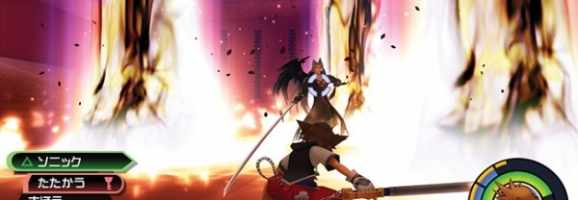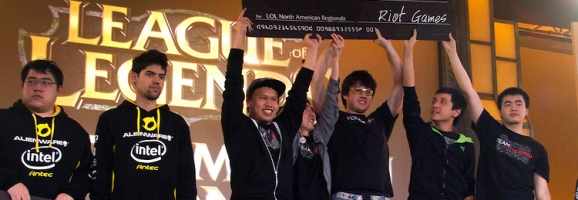Video Games & The “Just Google It” Mentality
It was dark in the room when the PlayStation vanity logo flashed across the television screen, illuminating the living room walls in a wash of white. Every morning of that summer was the same – the alarm would sound off on my Timex carabiner, I would creep stealthily past my brothers whom lay sleeping in their beds, and in the home stretch, I would glide down the stairs to the living room; doing this day after day had taught me which steps creaked the loudest. In the quiet hours before the day began, the PlayStation went on with Tomb Raider II preset in the disc tray. That summer, I was participating in a Tomb Raider II group play with some friends online, and I was determined to beat the game to completion. No cheats. No walkthroughs. Just a purist playthrough with extreme bragging rights hanging in the balance. I was a few days in, knocking out a level or two a morning with minor difficulties.
But this particular morning was different.
It was the morning I took on 40 Fathoms – arguably the most terrifying level of the entire series. At the end of the previous level, a cutscene shows Lara Croft attaching herself to a mini-sub and descending to the wreckage of a sunken cruise liner, but when the sub is attacked by sharks, Lara is stranded on the ocean floor at the beginning of the next level. Her breath meter is rapidly depleting and feral predators are circling around her. Players have seconds to swim in the right direction before Lara drowns, and when players do make it to the sunken cruise liner, they have seconds less to avoid the predators on their tail.

That was the day I Googled my first walkthrough.
I did not realize it at the time, but typing those words into the search bar situated me amidst the masses of other kids who were beginning to adopt the same mentality – have a question? “Just Google it!” Generation Z, those born after 1995, is a “plugged in” bunch. Arguably, their need for instant feedback can be traced back generations to the development of the television remote – a device that inherently empowers users by showing them that they can get an instant response through simple action. Generation Z is unique in that the population it describes was raised with computers and tablets and smart phones at their fingertips. The Internet – an encyclopedia of infinite knowledge – has always been available to them. This unparalleled sense of instant available resources has fostered a new, generational mindset.
You know what I’m talking about. You’ve experienced it before. You are sitting at a coffee shop, or in your living room, or at work, and someone poses a question to which you have no answer. Whether the phrase slips from your lips or someone else’s, the words fill the space between you. “Just Google it.” The ability to look up any topic on a whim is awesome as it empowers youth with the capability to research any subject they are unfamiliar with. This mentality has affected the way new generations are approaching problems, but it has also profoundly affected video game culture.
Video games used to be challenging. Puzzles left players stumped. Gear-gated areas left players stranded in virtual worlds for hours in pursuit of that one item they needed to progress to the next level. The quirks that let players take down bosses were discreet and obscure. In these older games, I often found myself turning the system off in frustration and vowing never to pick up the game again, only to attempt the most recent level, with success, later that afternoon. Inevitably, that moment always came where I overcame the challenge. Where I solved the puzzle. Where I found the item I needed. Where I beat that insanely difficult boss. The feeling of satisfaction that derives from overcoming a video game’s challenge is like a drug. It makes players feel strong, clever, and generally badass. In this regard, the ” Just Google It” mentality has had an adverse effect on the video game industry.
When faced with an obstacle they can’t instantly overcome, a player’s first reaction is to look up the fix online. However, the Internet was not always the go-to solution. Physical walkthroughs and strategy guides have existed almost as long as the industry itself. “Nintendo Power” pioneered the sharing of game tips and tricks in its monthly publication starting back in 1988. Prima Games and BradyGames followed suit with their first releases in 1990 and 1993, respectively. At the time, print guides were the most-accessible resources for overcoming obstacles in games, but their significance was downplayed by the rise of Internet mega-powers like YouTube and Google. It is much quicker to find a video on boss strategies than run to the store and find the same tips in a pricey book. Another service, which may have been more of a catalyst for today’s quick-solution mentality was the video game helpline. Game studios offered phone numbers which gamers could call whenever they needed assistance (although this service often cost small fees.) It is common sense that if a more-accessible, cheap help service came along, gamers would flock to it for assistance. The medium has changed, yet the song remains the same. Players want solutions for their gaming qualms, and the Internet provides just the accessible, free service they require. This type of instant accessibility has changed games, much to the protest of their biggest fans.

Critics and fans alike will often profess the lack of challenge in new games on the market. They can be conquered with little to no difficulties or contextual frustrations. In an attempt to make their games appeal to a wider audience, developers have incorporated in-game help systems such as the Survival Instinct in Tomb Raider, or Detective Vision in the Batman: Arkham series. While these mechanics are given narrative context, they simplify the few challenges or puzzles in our favorite titles. Assassin’s Creed, Far Cry, Thief – our favorite AAA games have all thrown in the notorious in-game help system. Stumped on a puzzle in Tomb Raider? Just tap a button and see all the pieces of the environment you can interact with. This mechanic is rarely mandatory, but its inclusion keeps less-experienced gamers less-experienced by not forcing them to push through the difficulties.
Where is growth without trial? This is clearly a result of players’ need for instant feedback. Consequently, the expectation developers have for a player’s puzzle-solving abilities have lowered, and the games which used to stump even the most hardened of players have been stripped down to experiences where every challenge has a quick and clarion solution.

Tangentially, “Just Googling It” has exposed gamers to their arch-nemesis: spoiler culture. A simple Internet search to understand a mechanic or look up a battle strategy is counterbalanced with the risk of stumbling across a monumental story spoiler.
You can never un-see a story spoiler.
I was thrilled when Batman: Arkham Origins was announced; despite it being developed by a new studio, I was assured that the story would be of the same high quality which was present in the previous two entries to the series. About halfway through, while tackling the difficult Dark Knight challenges, I struggled to get Batman’s shock gloves to work, and surprisingly enough, how to activate them was not detailed in the controller help menu. Innocently, I went to Google to look up the controls, only to have a huge, pivotal story spoiler thrown at me in the first paragraph of a “how-to.” It is impossible to avoid spoilers on the Internet – every medium is at risk. One practically has to avoid Twitter entirely whenever a new episode of Game of Thrones airs . But while it is possible for one to avoid spoilers online, it is impossible to ignore the urge to take the risk of surfing the web – that nagging feeling that says one’s eyes will be spared of spoilers is never right. Curiosity will always kill the cat.
The abilities of new generations to solve problems without a search engine may be stunted by this new mindset, and players may be at a higher risk to game spoilers, but it is worth noting that online gaming communities have stemmed from this Internet revolution. Games like League of Legends encourage players to meet online and share the best Champion builds, and Pokémon always brings players together to compare stats and move sets, in search of that perfect battle strategy. Arguably, the most fun exists in mastering these systems oneself, however, the benefits of jumping onto Google outweigh the negatives in a really big way. Online communities have been as revolutionary for the video game industry as motion controls. Being able to instantly Google Call of Duty – Zombies strategies encourages players to share their own tips and tricks. The more people are talking about video games, the larger their audiences become. And by further extension, larger audiences make the video game industry a larger, more-relevant part of global cultures and societies.

It seems as if the “Just Google It” mentality is going to keep being passed down through all foreseeable generations. The Internet is as part of our world’s infrastructure as roads and bridges. As long as it exists, so will the outlook that answers are only a few taps of a smart device away. Its effects on the video game industry are both obvious and obscure, positive and adverse. Challenge is being removed from games as gamers continually fall on search engines as their crutch when faced with the slightest of obstacles in-game, and players are at a higher risk of exposure to game spoilers than ever before. Yet, on the contrary, the accessibility of the Internet serves the development of online game communities, and further, increase the significance of video games in our culture. A few years back, I went through and played Tomb Raider II all over again, the way I originally intended so long ago. No cheats. No walkthroughs. An exclusively raw experience with just a controller and my wits. My hopes are high that the video game industry will acknowledge the impact of this new mentality – that it will embrace and expand the positives but work to bring a little challenge back to the games you and I love.
What do you think? Leave a comment.











Can definitely relate to this. Great article!
Thanks! Are there any games that you find you are frequently looking up solutions for?
Great article. I appreciate how you address both the pros and cons of an increasingly plugged-in video game culture. Despite increasing access to content-related guides, people still find ways to challenge themselves. The Pokemon Nuzlocke challenge is a great example of recycled content being played in a way the no strait-laced guide will ever explain.
I looked up the Pokemon Nuzlocke challenge. How cool! I did an online ‘Tomb Raider II’ group play awhile back, and we inflicted different challenges on ourselves such as No Saves, No Health Kits, or No Kills (except for bosses). This is a great way to replay a game that you love, especially when it seems much easier replaying it years later.
Glad you enjoyed the article!
I must confess that I was probably one of the most plugged in gamers on the face of the planet. I got my PlayStation when I was about five and back then if I couldn’t beat a game, I’d just toss it. Sure enough that impatience was what would spur me to look up walkthroughs when I couldn’t get past certain sections. My first playthrough of Metal Gear Solid was completed with a laptop by my side. The same goes for my first playthroughs of Jade Empire and the Ratchet and Clank series. Having been such an unabashed supporter of the “just Google it” strategy has recently helped me change my mentality towards playing games. I listen to video game enthusiasts like Arin Hanson (egoraptor), Jon Jaffari (JonTron), and Brook Leigh (PressHeartToContinue) talk about how the feeling of accomplishment in overcoming a game’s challenges is one of the best things a gamer can feel and frankly I never had that growing up. Recently I’ve played through all my games, old and new, without the help of strategy guides and internet FAQ’s and it’s stunning how much more rewarding the experience is. Sadly, as you said Hunter, it seems like developers are noticing that gamers are so impatient when it comes to games (one may even say lazy) that they are including help screens/mechanics that make games a cinch to breeze through. Luckily a lot of them can be bypassed (like in Bioshock: Infinite; the guide arrow can only be activated by pressing a certain button and even then I think that there’s an option to turn it off). But the fact that it’s there in the first place implies that Irrational Games thought that it needed to be there for gamers. I don’t know anymore than anyone else does about the future of game mechanics; so long as there are ways to make the game challenging, even if they are self-inflicted challenges, there will always be a way to feel that sense of reward for having conquered that tough boss/level.
Self-inflicted challenges is an interesting topic. I’m conflicted about evening throwing optional help systems in, because their inclusion holds back newcomer gamers from strengthening their puzzle-solving skills.
Self-inflicted challenges are fun, too. Have you ever tried speedrunning?
I’ve heard of it but I’ve never attempted it; honestly I don’t really how it works. Could you tell me about it?
Sure thing! Speedrunning is when gamers try to beat their favorite games as fast as possible. Here’s one of my favorite speedruns: https://www.youtube.com/watch?v=v9TKXp2rpnw. It’s from Tomb Raider III, and it took me a solid twenty… thirty minutes to complete. This player beat it in just over a minute.
This is an example of a self-inflicted challenge. Other examples are like playing Legend of Zelda without upgrading your health bar, or playing Pokemon without using any health potions.
I completely share your feelings about this topic. When I was younger I spent hours (and hours) playing ‘Simon the Sorcerer’ – a questing game that required the player to collect clues and travel throughout the parallel universe to solve various puzzles. I loved the game so much, and when I eventually finished it I felt like I’d really achieved something. However, by the time the second ‘Simon the Sorcerer’ came out, I was fully equipped with my secret weapon: Google. Being able to google the answers meant that I could finish the game much faster, but it also took away the fun. And, I’m pretty sure my ability to ‘figure out’ the answers became completely stunted.
This is exactly what I described in the article! Looking up walkthroughs for puzzles becomes such a bad habit. When I was younger, the LEGO games made me a prime offender.
(BTW, I looked up a YouTube video of ‘Simon the Sorcerer,’ and the first video I found showed Simon, presumably, kissing a lady who then transformed into a pig.)
The other day I was playing Ni no Kuni and you have to look in the in-game book for this answer to a question an NPC asks you and I just googled it without even looking it up. I didn’t really feel guilty because the NPC’s question wasn’t interesting. I guess I’m glad that kids can just google these things because it gives the player more freedom to do what they want.
I really did enjoy the read – especially with allusions to my favorite video games (Kingdom Hearts and Pokemon!). The “Just Google It” mentality is a broad topic, and I never really thought of its impact on the video game industry until now. You applied it to the broader culture as well, and your article does bring to question… Have video games gotten easier? Or is it simply because we now have large online resources that we can easily access in order to answer in-game questions?
Overall, great article! 🙂
The more we rely on Google, the more our future generation will lack the confidence to approach conflicts or issues through innovative and creative methods.
I did some research before writing this article so I could form some fact-based opinions on what I was discussing. Generation Z traits, just like any other generation, has both pros and cons. Gen. Z kids are born and raised to multitask, however as I state in my article, they demand that quick instant feedback. It is interesting to ponder how Gen. Z kids are going to change the workplace in the future.
I agree Christelle. I believe this applies to other areas besides video games, as well.
Well done. Love the biographical approach to the article. I admit the first time I googled how to get past a level I felt like I was cheating. I think the rising cost of game guides is doing a disservice to the industry. I love game guides for the additional art and concept work but I cannot justify spending the money when I’d rather buy the newest DLC or pre-order my next game.
Maybe developers should start teaming up with Prima or Brady to create incentives like exclusive DLC or collectibles. The game guide is a lost art.
It really does depend. Some people play the game for the puzzles more than the story while others, although still enjoying the puzzles, also play for the story and don’t mind to check a walkthrough more so than the former. For me, it can be the latter and other times, I check it out to prevent myself from going crazy and going insane (and loose patience) just because I didn’t know I could do something. The issue sometimes though is getting OFF of the walkthrough, using it as a crutch at the end. Although, unless it is from the source itself, I admire the people that make such a walkthrough because they took the patience and figure it out on their own.
Or looked at a walkthrough for assistance… 😉
There are times when checking a walkthrough is warranted. Tomb Raider V introduced a slew of new mechanics, but never listed them in the game guide like, for example, lifting open hatches. This made some very simple tasks ridiculously difficult and utterly absurd when the game’s challenge should be in gunning down bosses and navigating treacherous environments.
What I’m saying is that it’s perfectly fine to dive into a walkthrough when the game developers do a poor job of explaining the mechanics.
I hate myself after googling an answer for a game. Nothing is worse then playing professor layton, a game where problem solving is the ONLY gameplay, and having to resort to google. At that point, why are you playing? There are some games that googling an answer wont actually help you. Dark Souls is all about the skill of a player, it doesn’t hold your hand and forces you to repeat the game over and over again until you get it right. While this isn’t my favorite kind of game, I have respect for it. I don’t think that you should never ask for help on a section of a game, but just don’t use it as a crutch. 🙂
“Just google it” should not be applied until the gamer knows nearly everything there is to know in the game itself, and there is no alternative way of actually discovering what’s being looked for. For instance, the Sephiroth fight in Kingdom Hearts may be greatly rewarding to overcome, but you can be sure that it will be a far greater thrill and accomplishment if one can manage to overcome it using one’s own skill and intellect. (thought this is not something I ever did. I guess I just never got that deep into KH)
There is one very particular game series which should be recognized here. Many may have heard of it and were actually scared off just at the name and description of it. The Souls series, of “Demon’s Souls,” “Dark Souls,” and now “Dark Souls II,” are all games that strive on the thrill of accomplishment. By making the game so hard to learn, but still very possible with the right amount of intellectual focus and patience. This game becomes one of the most rewarding things to do, possibly ever. The focus of the game is to make it difficult enough for the player to learn how to take on each obstacle, and how to better themselves (as they are immersed as their character) to the point where they feel a love for each time they are successful. I have played these games for several years, quite diligently, and to this day I still find new things to overcome and new challenges presenting themselves to me. Once the game is over, the challenge doesn’t end, and you don’t need “google,” to create new problems for you to solve. You simply gather the knowledge that you have pieced together through your time playing and create a new scenario for yourself. The possibilities are endless, and knowing the wonder all roots inside of yourself, just makes for an even more satisfying gaming experience.
I was going to comment independently, but you’ve summarized my thoughts better than I could.
Modern game design is EXTREMELY different than it was in the past, though. As a child, the games were meant to test you – to defeat the player – mostly because their design philosophy stemmed from arcade machines that were purposefully rigged to make the player lose and deposit more money. This was archaic and I feel like older gamers sometimes over-romanticize this period.
As an adult, I have no time from that sort of design philosophy. I don’t feel a sense of achievement when I overcome a section I just failed multiple times. I feel like I just wasted a bunch of time – and my time is worth something now. I’m an adult now without the luxury of spending my afternoons mastering a game that really doesn’t matter.
But as I’ve grown, game design has grown with me. No longer are games made to be lost. They are made to be won. The game is my friend, instead of my enemy. I much prefer this generation of game design as it opens up new possibilities. The satisfaction of Mega Man came from losing 50 times, then finally triumphing and receiving nothing but a dopamine rush for your troubles. Modern games provide fun by allowing you to explore more fully-realized worlds. You might never lose a life in a playthrough of Ratchet and Clank – but you’ll laugh, you’ll blow things up, you’ll enjoy the graphics, and you won’t have a anger-induced stroke.
There are certain times when I have to use Google in order to proceed (every God of War game comes to mind). However, this is not MY failure as a gamer. This is a failure on behalf of the developer. The developer has failed to communicate how to proceed – how to succeed. Outside of a sandbox experience, this is infuriating.
Most new games can easily be completed without any outside resources. Those that CANNOT should not be placed on a pedestal – as if their difficulty is a bragging point for those who can succeed without help. I understand that gamers have fragile ego’s and they want to feel as though these sorts of accomplishments are somehow important – but really they are only encouraging antiquated design.
I don’t think this means challenge has been removed from games, either. But what KIND of challenge are we supporting? The kind where all enemies can kill the player in one-hit and send them back to a checkpoint from 30 minutes ago? Or worse – a game-over screen?! I hope they ban these sorts of things forevermore. I often hear of old-school games spoken of in a way that suggests they are more pure experiences in terms of gameplay. But I refute that – they are simply extremely-short games that had to use parlor tricks to force you to start over so you wouldn’t beat them in 5 minutes. There was very little gameplay – just a lot of punishment.
I feel like I hardly ever die now in a game, though I find them equally challenging. They require much more in-depth reasoning than their old-school counterparts. Those games were all timing and hand-eye coordination. I actually find myself having to use my brain now, and apply principles I’ve learned in other areas of my life. It’s so much more satisfying.
I’ve relied on “just google it” or rather, “gamefaqs it” for some games. However, hardly ever in the sense of trying to beat a game. Looking up strategy guides for extra content, missing heart pieces, or trying to collect all 108 stars in Suikoden is vital because any one mistake can ruin that “perfect” experience you crave.
Touched a warm and fuzzy place in my heart. I remember my dad and I waiting for the newest Nintendo Power to come out when we got stuck on some particularly thorny puzzle or boss on a game we were playing together, after we had exhausted our collective brains and resigned ourselves to waiting for the “big guys” to let us in on the secrets. Very nice analysis. 🙂
I am terrible about “just googling it.” Not only when it comes to video games but everything. I feel like the rise of Google has reduced my ability to think independently and problem-solve on my own because the information is just a click away.
This is a great article dude – a concept I havn’t really thought of before, but have definately been involved in. I remember being young and stuggling through Zelda on N64 and finally buying a walkthrough guide in print just so I could finish the game. This information now is all so fast and instant it does take away from the game, but I agree with you that that the internet has brought gamers together. It’s a double edged sword.
When Hearthstone was still in beta, people made interesting and unique decks. Now ranked play if filled with copycat decks. The ability to steal the best decks from the best players is stifling the creativity that used to be an integral part of the game.
I don’t think the “just google it” mentality is all bad though. When it comes to competitive games, googling a strategy can help mitigate the learning curve and cause an influx of more skilled players. This can grow the game in a positive way. In the case of Hearthstone, however, googling is definitely a detriment.
I don’t think that anyone can argue that games, especially AAA games, have become significantly easier than they ever were in the past. Developers have found a way to combat that trend, however, through the use of achievements/trophies. By adding in this artificial level of difficulty, the gaming community has found a way to appeal to those of us who want to play a game and be truly challenged as well as those that just want to play a game to experience the game-play and narrative.
Imagine when google glass evolves into some kind of technology that is basically hardwired into your eyes or brain. Then one can see the search results without having to move. Imagine how this is going to change learning. Especially cheating, can you imagine taking a test and seeing the answers appear right in your frame of vision? The future will be a crazy time.
I remember when I was little and I would watch my mother play Ocarina of Time religiously, before the days when you could ‘just google it’. She would sneak with us into the game store to peek in the guide book when we were stuck because we were too poor to buy the whole book itself. One of my fondest memories, one of which we can look back on and laugh now when the internet makes it impossibly easy to look up answers on the internet.
Although I am also guilty of looking up walkthroughs for games, I don’t like the ability to just look up how to do something in a game. It eliminates any challenge, so when I catch myself doing it, I feel bad about it later. Sometimes I wish I could find something that would stop me from looking up walkthroughs.
However, I am proud to say that my friend and I completed Portal 2 (co-op) without the help of any walkthroughs. It was mind-bending, but it was accomplished.
This has happened to me for far too many video games. I get stuck on a puzzle in a game (normally Assassin’s Creed) and I look up a walk through only to spoil myself for the entire ending of the game. I knew what happened in Far Cry 4 before I finished it because I looked up a hint for my partner. I wish the temptation wasn’t so strong; when I get stuck I immediately want to figure out what to do. From written walk through’s to video walk through’s, trying to stay away from spoilers is far too hard anymore.